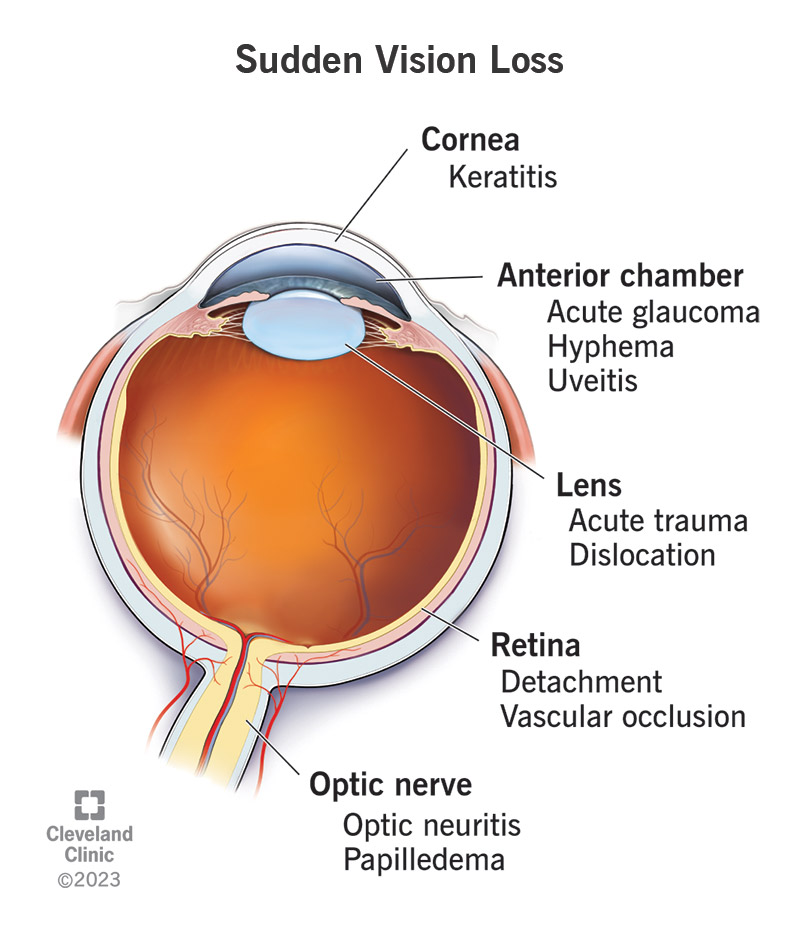Sudden loss of vision, which can happen in minutes or over a few days, is a medical emergency and requires immediate treatment. Many conditions can cause sudden vision loss. Treatment will depend on the cause.
Advertisement
Cleveland Clinic is a non-profit academic medical center. Advertising on our site helps support our mission. We do not endorse non-Cleveland Clinic products or services. Policy

Image content: This image is available to view online.
View image online (https://my.clevelandclinic.org/-/scassets/images/org/health/articles/24803-vision-loss)
Sudden vision loss is a medical emergency. Sudden vision loss means a swift, usually unexpected, loss of the ability to see well or to see at all. It can happen in seconds, minutes or even over a few days. It can happen in one eye or both eyes. You can lose all vision or vision in one part of your visual field, such as a loss of central vision.
Advertisement
Cleveland Clinic is a non-profit academic medical center. Advertising on our site helps support our mission. We do not endorse non-Cleveland Clinic products or services. Policy
You may wonder what the difference is between sudden vision loss and gradual vision loss. Gradual vision loss usually happens over months or years.
Vision loss can happen because of problems at any point in the visual process. The process involves your eye sending signals to your brain to create images. Issues with your eyes, nerves and brain can all result in sudden vision loss.
Common causes of a sudden loss of vision include:
A provider will typically begin by asking about what happened when you first noticed the loss of vision. They’ll also ask about your medical history and other symptoms you may have, including:
Advertisement
The provider may ask you to have some or all of these tests:
Sudden vision loss is a medical emergency. Call 911 or go to an emergency room immediately.
Treatment will depend on what’s causing your vision loss. For instance, your provider may treat you with:
You need fast diagnosis and treatment to have the best chance of getting your vision back.
You may be able to reduce your risk of sudden vision loss if you do certain things to protect your vision, including:
A healthcare provider should always evaluate and treat a sudden loss of vision. If you lose vision suddenly, go to the emergency room immediately.
If you suddenly lose your vision, you need to get immediate medical help. This is true if you lose vision in part of your field of vision, in one eye or both eyes. And you need to get help whether you have pain in your eye or not. It’s scary, but the situation can often improve as long as you get medical attention quickly.
Advertisement
Learn more about the Health Library and our editorial process.
Cleveland Clinic's health articles are based on evidence-backed information and review by medical professionals to ensure accuracy, reliability, and up-to-date clinical standards.
Cleveland Clinic's health articles are based on evidence-backed information and review by medical professionals to ensure accuracy, reliability, and up-to-date clinical standards.
Cleveland Clinic’s ophthalmologists and optometrists have the highest training available. We provide exams, vision correction and care for many eye conditions.
